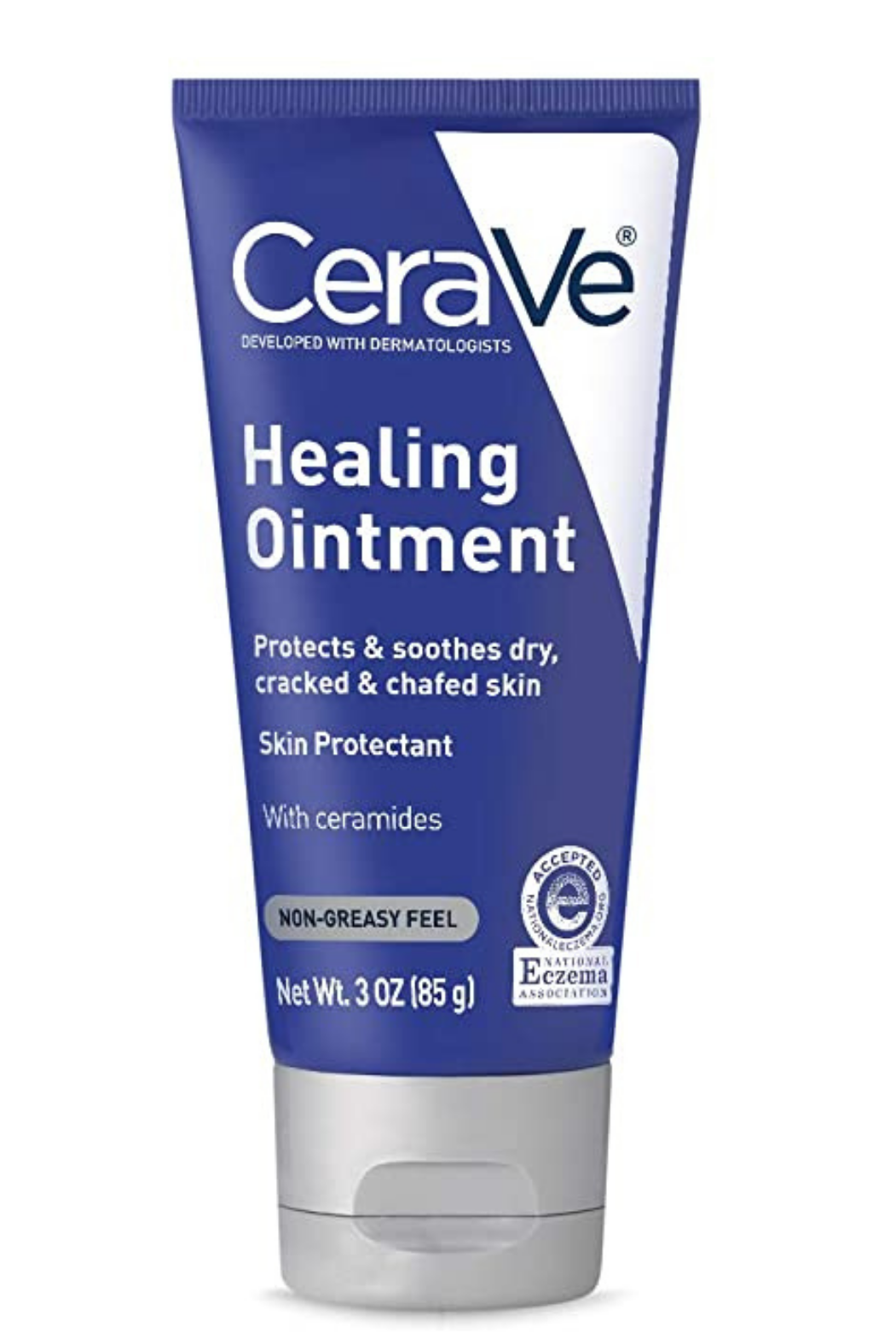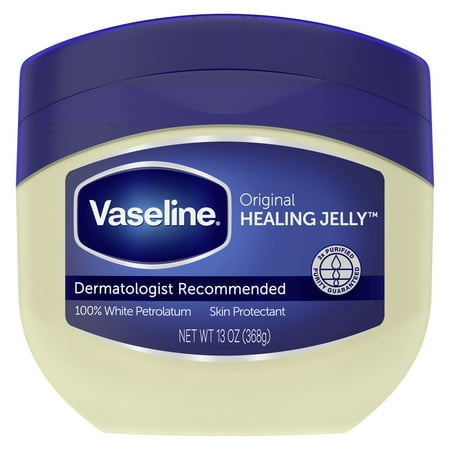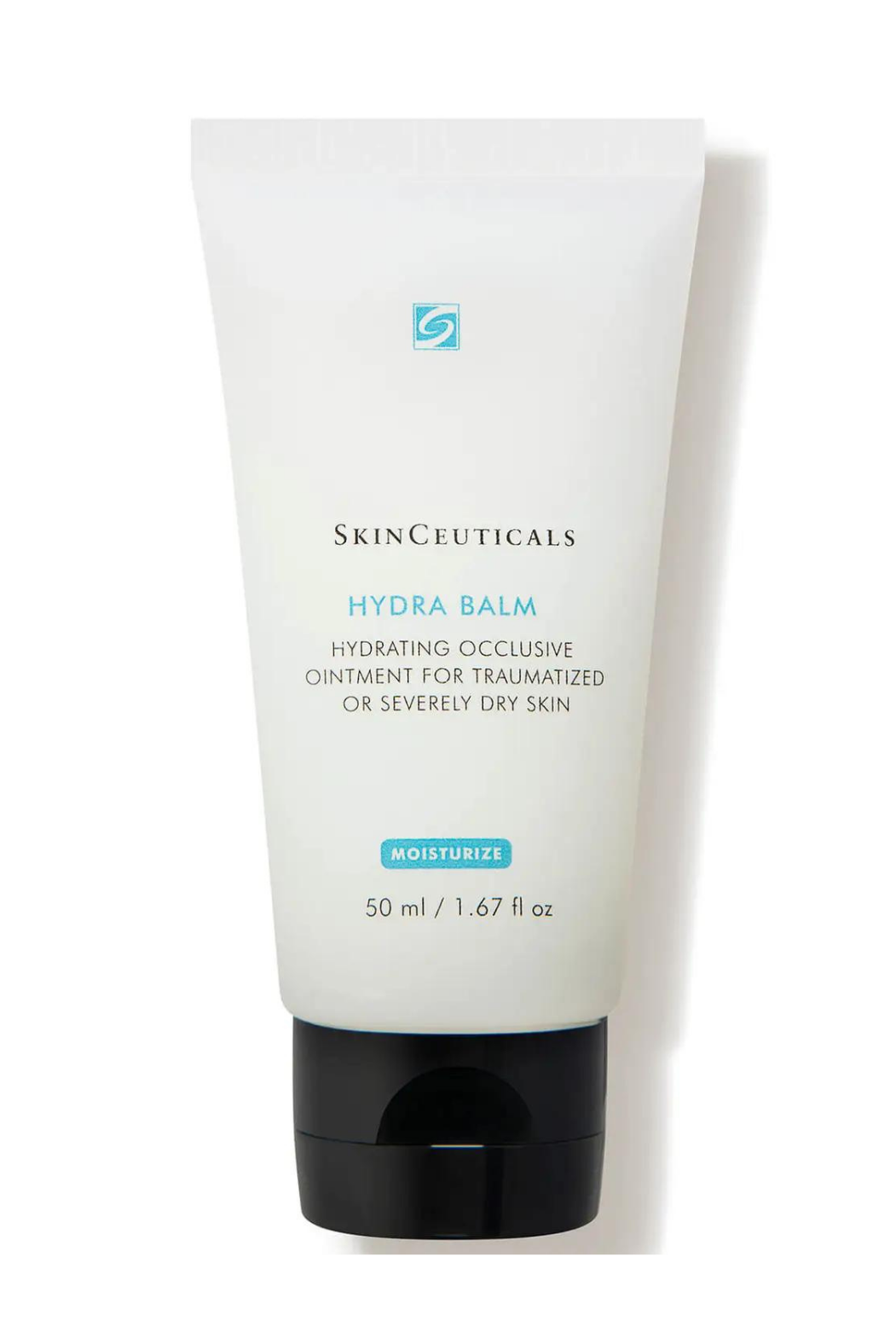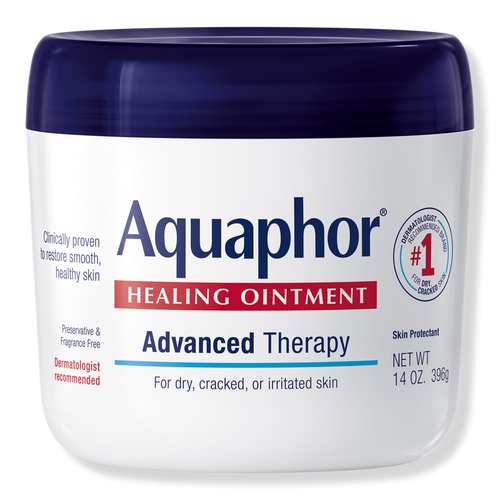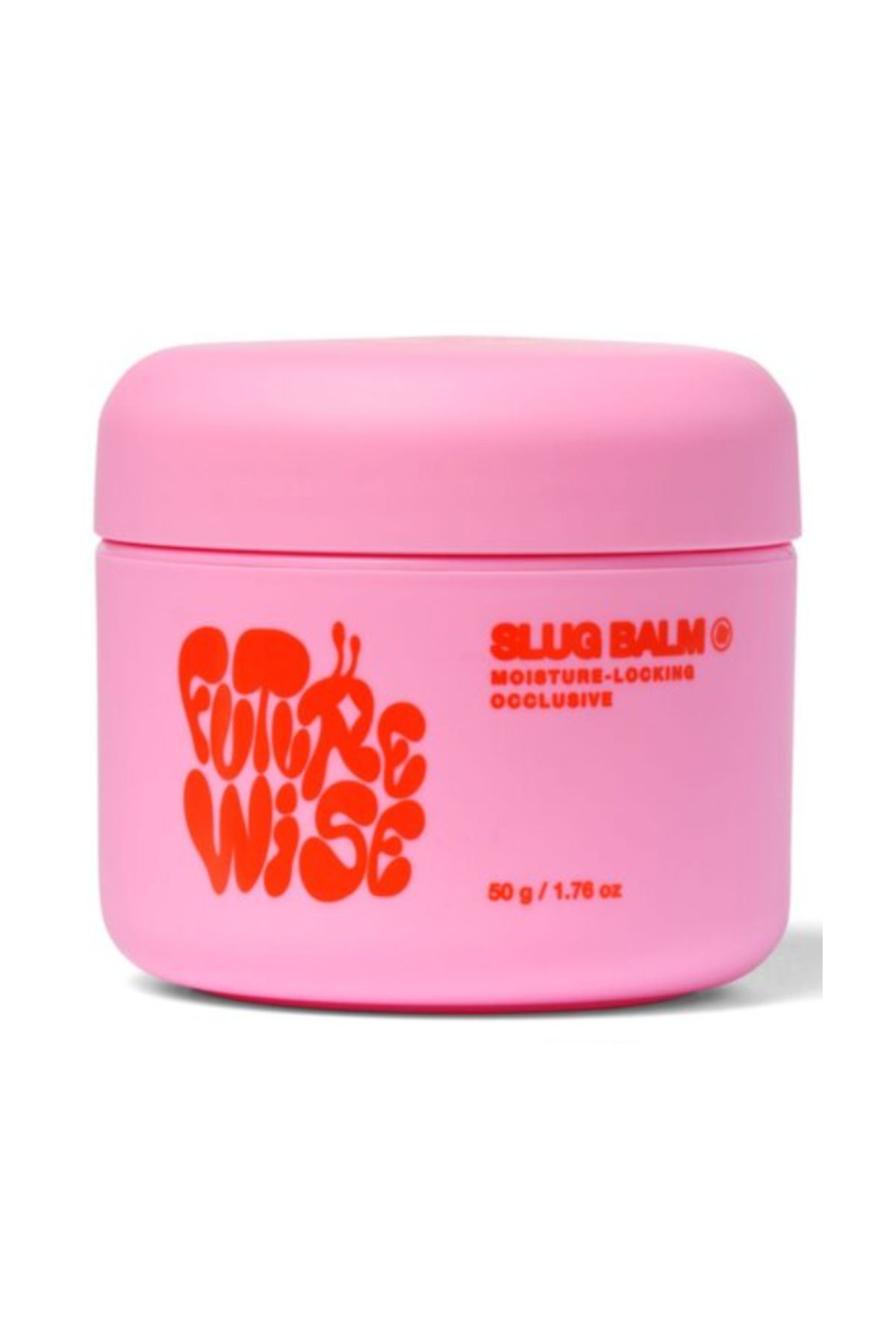What Is Slugging? The Benefits and Drawbacks, According to a Dermatologist
Read this before coating your face in Vaseline.
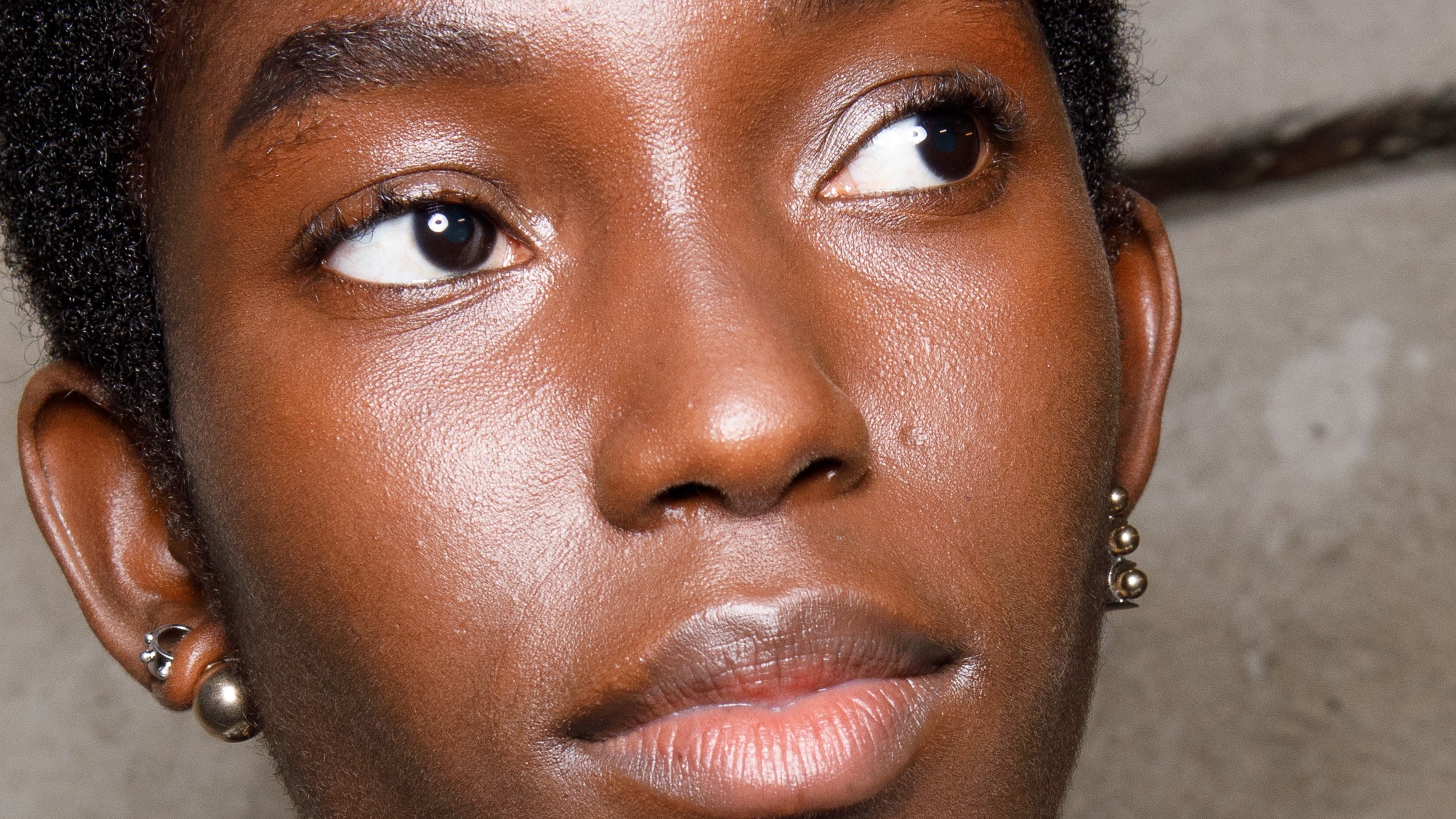
- What Is Slugging?
- What Are the Benefits of Slugging?
- What Are the Drawbacks of Slugging?
- Will Slugging Make Me Break Out?
- How Frequently Should I Be Slugging?
- What Skincare Products Should I Avoid When Slugging?
- How Do I Try Slugging?
- What Skin Types Are Best For Slugging?
- My Slugging Review
- The Best Products for Slugging

Samantha Holender
Slugging might be trending (the hashtag #slugging has amassed more than 268 million views on TikTok), but slathering on Vaseline before bed is a winter moisture hack as old as time. Layering on petrolatum has been a staple practice in the Black community for decades, has roots in K-Beauty, and has long been hailed as the skin barrier’s savior among dermatologists. Think: the best face moisturizer, but supercharged.
“There’s a lot of great data, since the beginning of dermatology, that petrolatum-based products are great for repairing the skin barrier, as an occlusive to prevent trans epidermal water loss, and to help the barrier repair itself,” explains board-certified dermatologist Robert Finney, M.D..
Even though slugging sounds like a drugstore-priced, moisturizing miracle worker, I urge you to proceed cautiously. I repeat: proceed with caution. Just because everyone on social media is taking it for a test run doesn't mean you should. “It is occlusive. It can trap oils or other comedogenic ingredients in the skin and could potentially contribute to breakouts,” adds board-certified dermatologist Hadley King, M.D..
To figure out if applying petrolatum to your skin could work for you, keep reading. With the help of dermatologists, I'm breaking down the do’s and don’ts that come with slugging in skincare.
What Is Slugging?
While it’s easy to get lost in the beauty aisle (so! many! great! moisturizers!), slugging is a one-product-and-done technique that locks in hydration. “Slugging is applying a layer of petrolatum or a petrolatum-based ointment to the face before bedtime,” Dr. King says. “A thick layer isn’t necessary to get the occlusive properties, but [it’s up to] your personal preference.”
Vaseline and CeraVe Healing Ointment are probably the most popular items on the market when it comes to slugging, but Dr. King says any occlusive product can be used to achieve the same intensely moisturizing effect. (Doctor's note: "Occlusives are oils and waxes which form a layer on the skin and physically block trans epidermal water loss.")
What Are the Benefits of Slugging?
“For dry skin, particularly in a dry environment that will exacerbate trans epidermal water loss and dryness of the skin, applying an occlusive like petrolatum can be very helpful,” Dr. King explains, noting slugging seals in moisture. Dr. Finney adds that petrolatum-based products are “amazing for patients with a breakdown of the skin barrier, sensitivity of the skin, and eczema on the face.” Studies have shown that petrolatum is extremely effective at restoring a compromised skin barrier.
Get exclusive access to fashion and beauty trends, hot-off-the-press celebrity news, and more.
What Are the Drawbacks of Slugging?
Slugging isn’t for everyone. While there are benefits to using petrolatum as a skincare product, anyone with acne-prone skin should steer clear of this practice, as it can contribute to more clogged pores and, in turn, more pimples. Instead, reach for an oil-free moisturizer, like the Elta MD PM Therapy Facial Moisturizer.
Will Slugging Make Me Break Out?
A healthy dose of skepticism is of utmost importance when taking advice from social media. While the viral videos are correct in that Vaseline is non-comedogenic (meaning it won’t clog pores or cause breakouts), it’s a little more complicated in actuality. Dr. Kings explains that because of the product’s occlusive nature, it can end up trapping ingredients from your other serums or makeup debris that can cause breakouts.
If you start to notice pimples or adult acne popping up, stop slugging. The main takeaway is to listen to your skin.
How Frequently Should I Be Slugging?
“Starting off slow will always be better,” Dr. Finney warns. Even though you can work up to slugging every night, it’s best to ease into the practice (think: one to three days a week) and see how your skin reacts. While you might not have active acne or acneic skin, you may still be acne-prone regarding certain products or ingredients.
“If you’re not super attuned to your skin, and you dive in head first, you could have a lot of breakouts, clogged pores, and congestion. Start off low and slow and make sure that your skin will tolerate it,” he advises.
What Skincare Products Should I Avoid When Slugging?
Slugging can amplify hydration, yes. So, bring on all the hyaluronic acid and peptide serums. But the reverse holds true, too. Dr. King explains that because petrolatum will seal in everything underneath, it can increase the potential irritation that comes along with prescription topical medications (think: Aczone, Tretinoin, Clindamycin—the list goes on), retinoids, or potent topical corticosteroids. Being on these treatments doesn’t mean slugging is a hard no, but proceed with caution and consult with your dermatologist.
How Do I Try Slugging?
While slugging may seem like a TikTok beauty trend, board-certified dermatologist Omer Ibrahim, M.D. FAAD, explains that the practice of slathering petrolatum (petroleum jelly) on the skin is nothing new. Dermatologists often recommend it for patients with extremely sensitive or eczema-prone skin, as well as after cosmetic procedures or skin rashes, to help create a protective skin barrier. Because petrolatum has almost no risk of causing allergic reactions, it’s considered a safe option.
To try slugging, Dr. Ibrahim recommends applying a thin layer of petroleum jelly, such as Vaseline, or an occlusive balm like Aquaphor, Vaniply, or CeraVe Healing Ointment as the final step of your nighttime skincare routine.
What Skin Types Are Best For Slugging?
“Almost all skin types can benefit from slugging; however, it’s best for those with dry skin or living in low-humidity environments,” says Dr. Ibrahim. He notes that those with oily or acne-prone skin may want to avoid slugging, as its highly occlusive nature can lead to folliculitis, milia, and even acne.
My Slugging Review
While I don’t jump on every viral trend (I proudly skipped the Kylie Jenner lip-plumping challenge, though I did do the ALS Ice Bucket Challenge on Facebook—make of that what you will), I was intrigued when slugging popped up on my For You Page. My skin has been ridiculously dry thanks to NYC’s never-ending winter and a radiator determined to suck every last drop of moisture out of it.
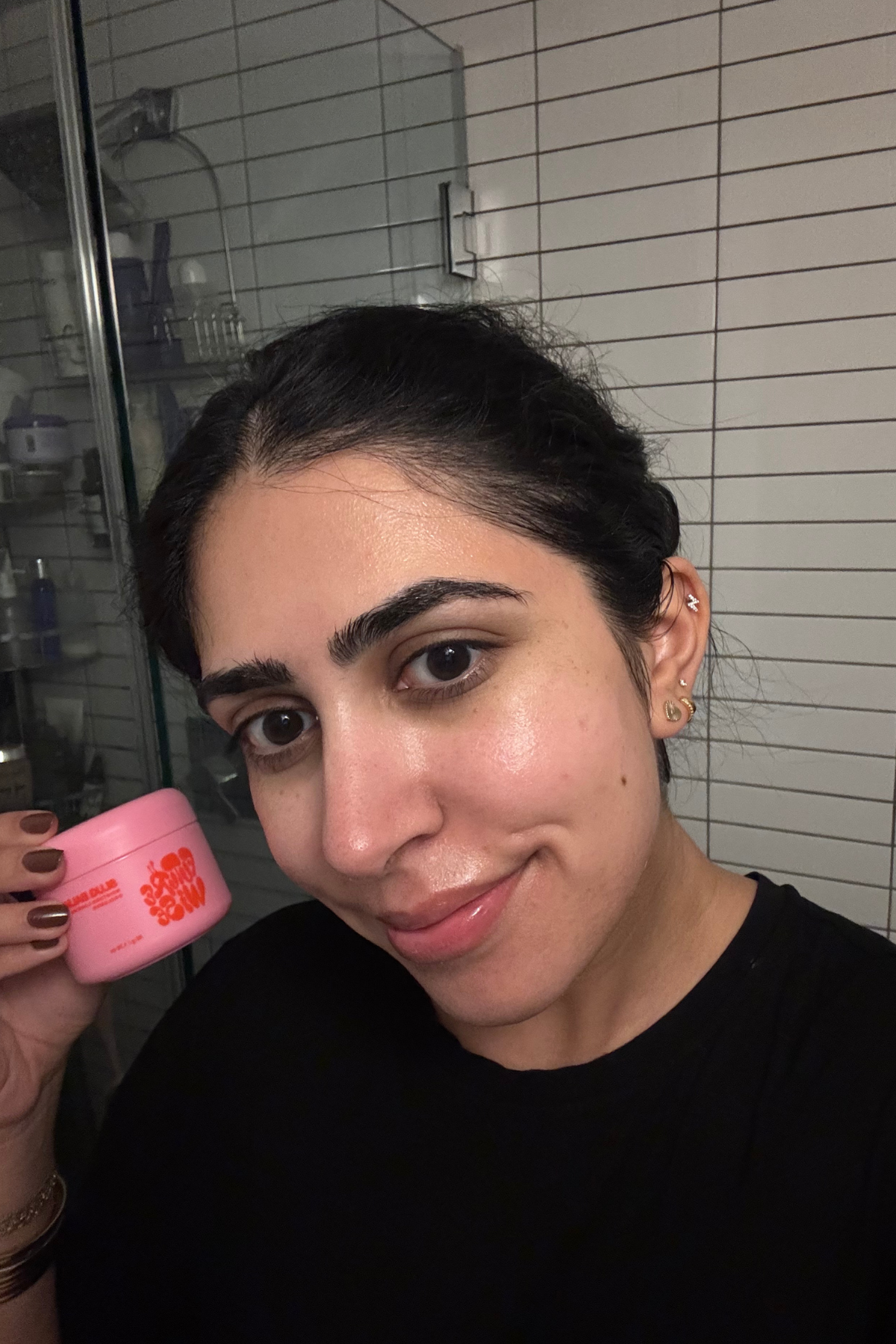
Iman Balagam wearing Futurewise Slug Balm before bed.
I started cautiously, applying a small amount of Futurewise’s Slug Balm (which is sadly discontinued) after cleansing and layering on my lightweight moisturizer. I opted for Slug Balm over petroleum jelly because it contains a mix of plant-based oils and a lipid complex, giving me moisturizing benefits in addition to occlusive properties. It wasn’t as greasy as I expected and melted nicely into my skin, though for the first 15 minutes, I definitely looked like I had a thick layer of product on my face (thankfully, no one was around to see me).
I was nervous about breakouts, but by morning, my skin felt noticeably more hydrated, and I didn't notice any congestion, which was my main fear with slugging. Once I knew I could trust the process, I started slugging multiple times a week over the next two months, especially since it was so cold.
Now that spring is on the horizon, I’ve scaled back to twice a week. I still reach for a thick barrier cream on off nights, like Dr. Jart+ Ceramidin™ Skin Barrier Moisturizing Cream or Rhode Barrier Restore Cream—both provide a protective layer and deep moisture without the heaviness of petroleum jelly.
Slugging isn’t for every skin type, but it makes all the difference when my skin is parched and desperate for extra hydration.
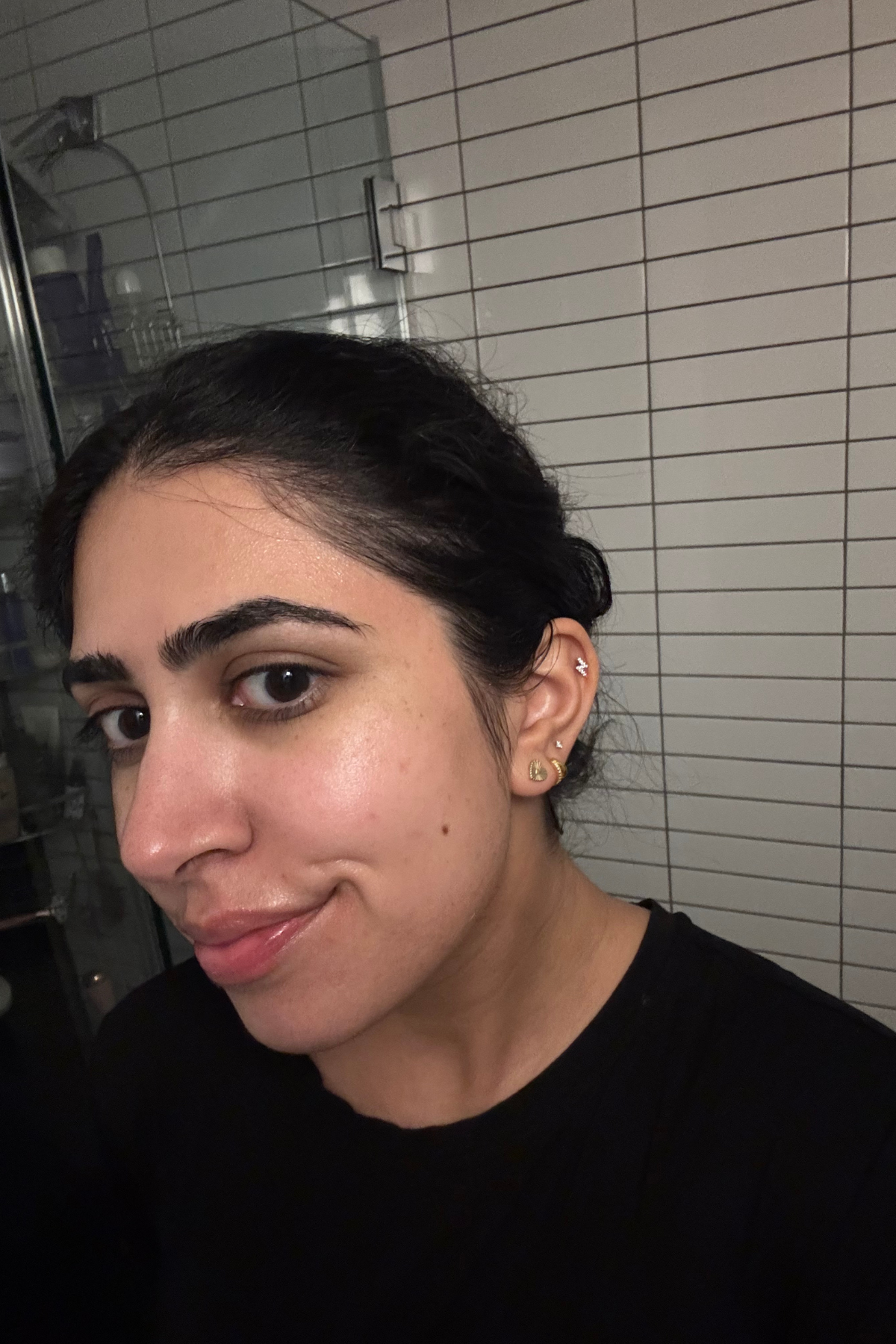
Iman Balagam the morning after applying Futurewise Slug Balm.
The Best Products for Slugging

Iman Balagam is a New York-based freelance writer with several years of experience covering the beauty industry. Balagam's writing has been featured in editorial outlets like Cosmopolitan, Teen Vogue, Byrdie, and Harper's Bazaar.
- Samantha HolenderSenior Beauty Editor
